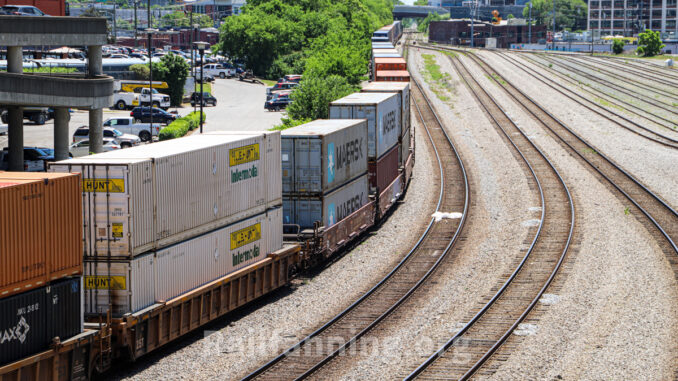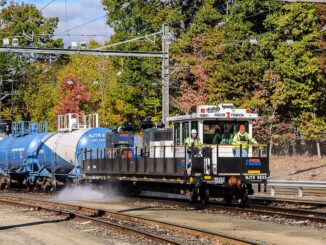
NJBIA and hundreds of business groups are urging the U.S. Environmental Protection Agency to reject a request from the California Air Resources Board (CARB) to circumvent federal law and effectively require railroads across the nation purchase zero-emission locomotives.
NJBIA Deputy Chief Government Affairs Officer Ray Cantor said that although CARB’s waiver authorization request filed with the EPA is ostensibly specific to California, the impact would be nationwide because 70% of the national locomotive fleet operates in California at some point.
“Granting this authorization would disrupt national supply chains, hurt the U.S. economy, drive up costs for consumers, potentially put railroads out of business and divert millions of tons of freight from railroads to trucks that are more carbon-intensive,” Cantor said.
In a letter sent last week to U.S. Rep. Rob Menendez, D-New Jersey, who serves on the House Transportation and Infrastructure Committee, Cantor reiterated the points that NJBIA and hundreds of business organizations made to the EPA in April. He asked Menendez to join the business groups opposing CARB’s authorization request and to urge EPA to do the same.
“The world is so interconnected now, especially here in New Jersey, home of the East Coast’s largest port,” Cantor wrote. “This waiver suggests a mandate for railroads to operate zero-emission locomotives in California as early as 2030, ban older locomotives despite the time remaining on their lifespans, establish spending accounts to the tune of as much as $800 million per year per railroad and likely put some smaller short line railroads out of business.”
While decarbonization is important, the costs associated with zero-emission mandates implemented under accelerated time frames cannot be ignored, Cantor said.
“This time frame is unreasonable since the technology does not yet exist commercially and if not rolled out in a strategic and practical manner it could have long-term consequences for the logistics system and the economy,” Cantor wrote. “Railroads are already a very environmentally friendly mode of surface transportation accounting for less than 2% of transportation sector greenhouse gas emissions.
“While New Jersey has its own aggressive climate goals, overhauling the entire freight rail system with technology that is not commercially available currently is a setup for failure,” he said. “All the freight that could no longer be moved by rail would then travel by truck causing more damage to publicly funded roads and bridges.”




